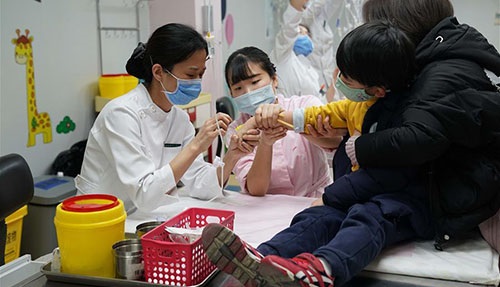The surge of respiratory diseases and lung inflammation in China, Vietnam, and Thailand, according to health officials, is not cause for concern as they are caused by ancient bacteria that went dormant during the Covid-19 epidemic.
According to Public Health Minister Cholnan Srikaew, the three-year COVID-19 pandemic brought an end to the childhood respiratory disease outbreak and lung inflammation in China.
According to him, lung irritation was uncommon during the epidemic because people maintained social separation and took good care of their health.
Despite characterising the issue as a seasonal ailment, Dr. Cholnan said he had instructed health officials to prepare appropriate measures to contain it, particularly in provinces that are popular with tourists.
On Facebook, Dr. Yong Poovorawan, the director of Chulalongkorn University’s Centre of Excellence in Clinical Virology, said that respiratory infections were becoming more common in youngsters in Beijing and Liaoning, with the majority of patients experiencing elevated fever and inflammation of the lungs.
There had not been any new pathogen discoveries, and the viruses’ seasonal spread was to blame for the cases. Thus, Dr. Yong wrote, people shouldn’t be concerned.
He said that children in Vietnam were also becoming more unwell with respiratory conditions.
Effective efforts were implemented to control respiratory illnesses during the Covid-19 pandemic. According to Dr. Yong, this meant that infants born within the previous three years, as well as those born during that period, did not acquire antibodies to the illnesses, and as a result, the viruses were now spreading.
He wrote that youngsters in Thailand have also been exposed to influenza, rhinovirus parainfluenza, and RSV.
He wrote that these disorders will eventually revert to the pre-Covid-19 levels.




